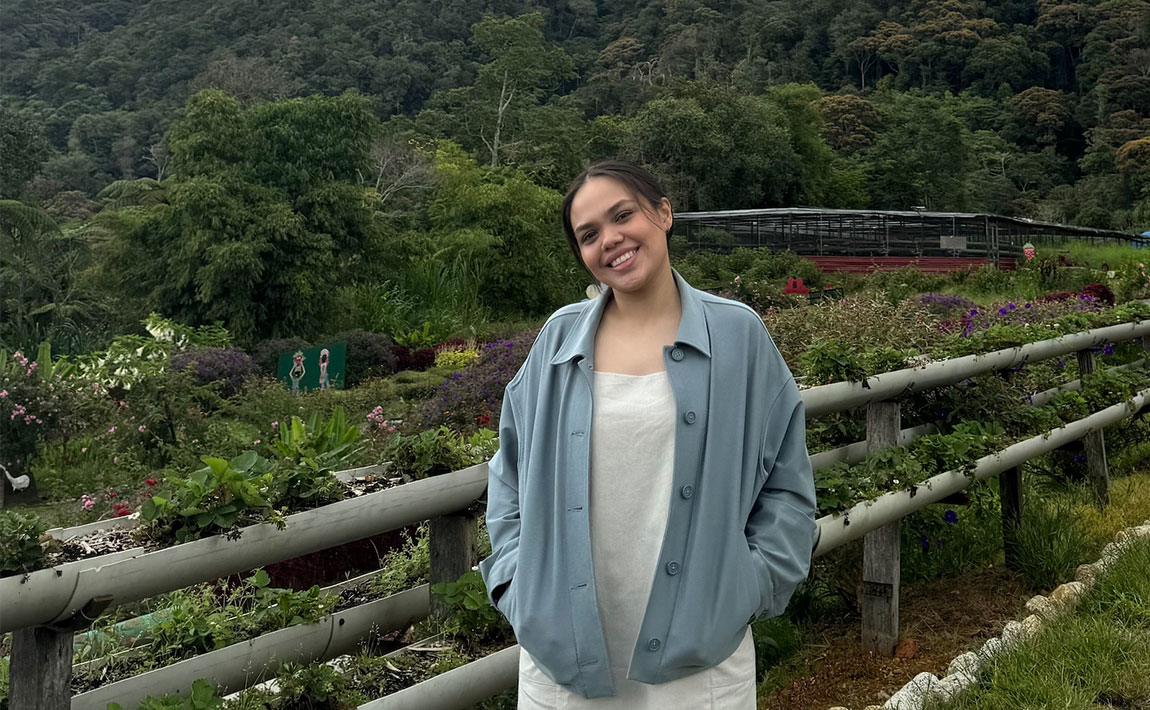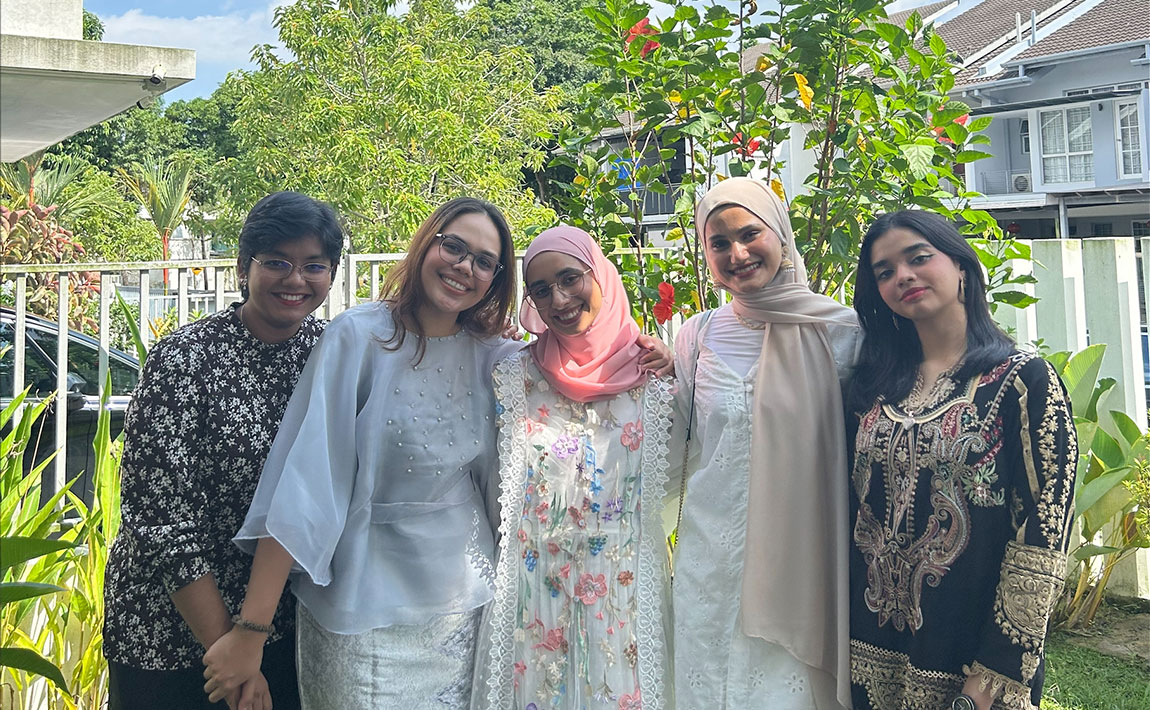A Sneak Peek at Pre-Clinical Years
Starting medical school is a significant milestone, and Year 3 MBBS student Amilya Anggraini Mohamed Hans shares her experience of navigating the pre-clinical journey at NUMed.
1 October 2025
Deep Diving into the Basics
The first couple of years of NUMed’s MBBS programme are designed to give students a strong foundation in basic medical sciences and early clinical exposure. As such, a typical day will revolve around a schedule of lectures that are held any time from 9 am to 5 pm.
According to Amilya, “Unlike high school or pre-university, medical school demands much more self-directed and active learning. On days when I have a lighter schedule, I usually spend my time studying and reviewing concepts and lecture materials.”
There are plenty of hands-on opportunities built into the curriculum right from the start. Amilya considers this one of the strengths of the programme, noting how the combination of theoretical knowledge and practical experience keeps her days dynamic and engaging.

For one, NUMed’s pre-clinical curriculum is case-based, with learning structured around clinical cases that integrate various disciplines. Upon the completion of each case, clinical reasoning seminars are held, providing a platform for students to apply and consolidate the knowledge they learn.
“These sessions present realistic scenarios that include clinical investigations and management plans to reinforce our understanding of underlying concepts and provide insights into the decision-making process in real clinical settings. This helps us develop a clearer foresight of patient management, even before clinical rotations,” explained Amilya.
Besides that, students participate in anatomy practical sessions, clinical examination practice and clinical skill workshops. The latter is usually optional, but recommended.
“I often participate in these workshops to gather more information regarding certain concepts and skills from external vendors or doctors,” Amilya shared.
Furthermore, there are five Early Clinical and Community Exposure (ECCE) sessions held each year. These not only provide context to theoretical knowledge, helping students to make sense of what they learn and why it matters, but also allow them to interact with patients and community members while honing crucial skills.
Balancing Study and Self-Care
With the wealth of content to cover in medical school, it is important not to put your own wellbeing on the backburner. To relieve stress, Amilya has several tricks up her sleeve.
“I make sure to listen to what my body is telling me. This includes taking naps or going for walks when I get tired from studying. I also ensure that I make time for a moderately challenging workout two to three times a week. Other than that, I spend time with my friends and family,” she said.
As the workload can pile up quickly, she highlights the importance of having a plan. “A schedule gives you structure, direction, and peace of mind,” she said. “However, life happens, and it is equally important to be flexible and adjust your plans as needed.”

At the end of the day, “Always remember your ‘why’. Keep reminding yourself why you chose medicine, especially during tough days. This has helped me a lot!” she concluded.
A big thank you to Amilya for giving us the inside scoop on pre-clinical years at medical school. We hope this helps those of you aspiring to study medicine.
